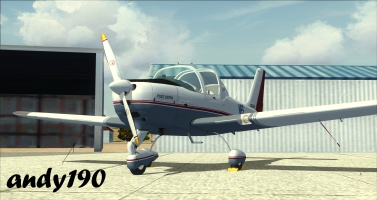
Simviation Forums
Flight Simulator and other chat






Ill watch it but numbers lie much. The 2 major objectives as far as I am aware was to do a test run of an amphibious assault and the big one: Lure the Luftwaffe out into a major open battle to fatally cripple it...On the 2nd objective it was a disaster. The Fw-190 shocked the Brits, roundly outperforming the Spitfire's and the Typhoon had a very bad start (several lost their tails diving escaping from attacking RCAF Spitfires). As far as the 1st objective, it indeed was a success...the Allies (us) learned we were no where near ready to carry out a major amphibious assault. Pretty much every reason the Normandy landings were successful came from a reason why the Dieppe landing was a disaster.



Ill watch it but numbers lie much. The 2 major objectives as far as I am aware was to do a test run of an amphibious assault and the big one: Lure the Luftwaffe out into a major open battle to fatally cripple it...On the 2nd objective it was a disaster. The Fw-190 shocked the Brits, roundly outperforming the Spitfire's and the Typhoon had a very bad start (several lost their tails diving escaping from attacking RCAF Spitfires). As far as the 1st objective, it indeed was a success...the Allies (us) learned we were no where near ready to carry out a major amphibious assault. Pretty much every reason the Normandy landings were successful came from a reason why the Dieppe landing was a disaster.
I heard an interview with the author on radio last week, who dug through thousands of documents and found things that weren't public until recently. The actual invasion was only a diversion while a special team carried out the actual mission successfully and virtually unnoticed. Try to catch the documentary as I haven't seen it yet I can't say more than what I heard. The author claims it rewrites the way we currently view the battle.
That battle and it's ultra secret mission was instrumental in keeping the supply lines to Britain open for the rest of the war.

Ill watch it but numbers lie much. The 2 major objectives as far as I am aware was to do a test run of an amphibious assault and the big one: Lure the Luftwaffe out into a major open battle to fatally cripple it...On the 2nd objective it was a disaster. The Fw-190 shocked the Brits, roundly outperforming the Spitfire's and the Typhoon had a very bad start (several lost their tails diving escaping from attacking RCAF Spitfires). As far as the 1st objective, it indeed was a success...the Allies (us) learned we were no where near ready to carry out a major amphibious assault. Pretty much every reason the Normandy landings were successful came from a reason why the Dieppe landing was a disaster.
I heard an interview with the author on radio last week, who dug through thousands of documents and found things that weren't public until recently. The actual invasion was only a diversion while a special team carried out the actual mission successfully and virtually unnoticed. Try to catch the documentary as I haven't seen it yet I can't say more than what I heard. The author claims it rewrites the way we currently view the battle.
That battle and it's ultra secret mission was instrumental in keeping the supply lines to Britain open for the rest of the war.
If it has to do with the U-boats, Im not so sure the tremendous losses suffered were worth it. Escorts of convoys were becoming increasingly more numerous and more powerful throughout the war. The real clincher in the war for the Atlantic was the tightening of 'the gap' in the middle via use of "very long range" anti-submarine aircraft like the modified B-24s. Point is, it is arguable. So to me, I would still call it a failure albeit one that taught important lessons that would lead to several far more successful landings.



If it has to do with the U-boats, Im not so sure the tremendous losses suffered were worth it. Escorts of convoys were becoming increasingly more numerous and more powerful throughout the war.




Not sure, but did I miss something here???
[glow=yellow,2,300]"outperforming the Spitfire's and the Typhoon had a very bad start (several lost their tails diving escaping from attacking RCAF Spitfires"[/glow]
Why would Royal Canadian Air Force Spitfires be attacking Royal Air Force Typhoons?


If it has to do with the U-boats, Im not so sure the tremendous losses suffered were worth it. Escorts of convoys were becoming increasingly more numerous and more powerful throughout the war.
If you hadn't noticed the Second "Happy Time" as the Germans called it was in full swing in August '42.
The Allies didn't manage to blunt the U-Boat threat till mid '43 at the earliest.


Just a note.
One of the Regiments involved in the Dieppe Raid was from Windsor, Ontario. The Essex and Kent Scottish.



I should point out that the British war industry still out produced the German throughout the war. Even through the Battle of Britain and all the convoy raids.



Subjects include mythical creatures, monsters, UFOs, aliens, truck drivers, alligator hunters, pawn stores, pickers, religions, disaster scenarios, and the apocalypse scenarios ...
Some of the aired programs compare contemporary culture and technology with the past, while other programs focus on subjects such as conspiracy theory, religious interpretation, UFO speculation, and reality television. In particular, the History Channel has aired a number of films on Nostradamus, as well as a special series on doomsday that promulgates various popular 2012 theories ...



Users browsing this forum: No registered users and 164 guests